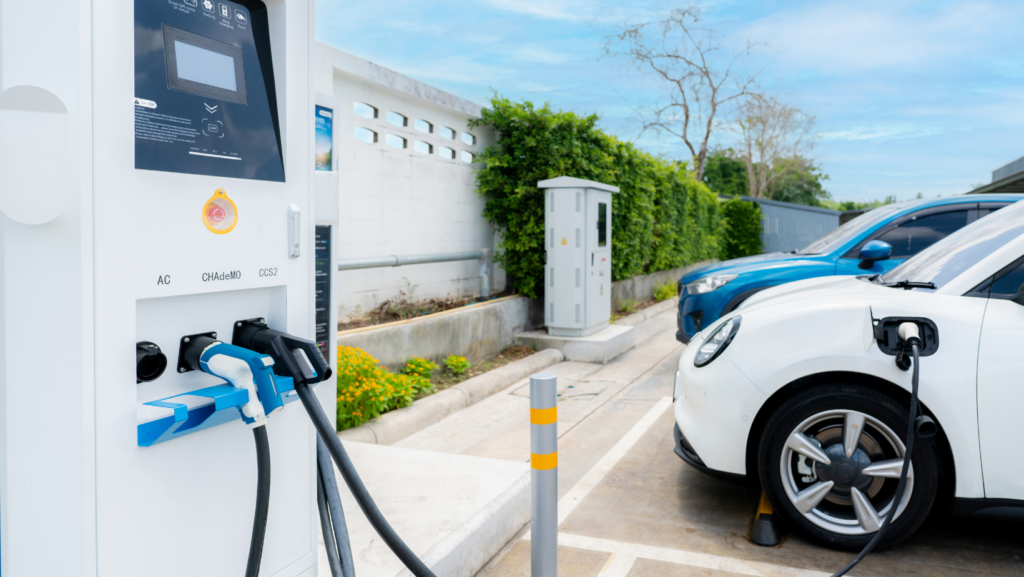As the world shifts towards cleaner, more sustainable modes of transportation, electric vehicles (EVs) are rapidly gaining popularity. With their promise of zero emissions and lower running costs, they’re ushering in a new era of mobility. But, one question that often arises is: do electric vehicles need oil changes.
Do Electric Vehicles need Oil Changes

To fully comprehend why electric vehicles (EVs) might not need oil changes, one must delve into their anatomy and how they differ from traditional internal combustion engines.
An internal combustion engine requires oil for lubrication, cooling aspects, and wear reduction, while an unpolluted electric motor operates solely on electricity. It uses magnetic fields creating less wear and tear, freeing it from the constraints of conventional servicing rituals.
Electric Vehicles and Oil Changes
Diving deeper into EV mechanics elucidates if oil changes are needed. Experience a change in perspective as you delve into the role of oil in traditional vehicles and why this might differ in electric cars.
The Role of Oil in Traditional Vehicles
In traditional vehicles, oil serves two critical purposes. Firstly, it lubricates the engine’s moving parts like pistons and valves, curbing friction. Secondly, it aids in cooling these components, controlling overheating issues.
Why Electric Cars Might Not Require Oil Changes

Electric cars primarily operate on electricity, thriving on an electric motor that doesn’t demand lubrication like an internal combustion engine. Consequently, they sidestep the need for oil changes, simplifying maintenance.
Yet, there are exceptions. Some hybrid electric vehicles (HEVs) use both an electric motor and an internal combustion engine, demanding oil changes given the latter part of the dual system.
Maintenance For Electric Vehicles
With a focus on the upkeep of EVs, a comprehensive understanding of servicing requirements is essential. Let’s delve into regular maintenance and common needs of these vehicles.
Regular Servicing for Electric Vehicles
EV owners aren’t exempt from regular servicing. Tire rotations, brake checks, coolant level reviews, and battery health inspections are all recurring tasks. For instance, a Tesla’s battery and drive unit warranty covers 8 years, implying frequent check-ups within this period.
Key areas needing attention in EVs include tires, brake pads, wiper blades, and electrical systems. Battery replacement, a standout concern, usually arises after a vehicle clocks 100,000 miles. An example would be Nissan Leaf’s lithium-ion battery with a warranty for 8 years or 100,000 miles.
Benefits of Electric Vehicles
Environmental Benefits of Electric Vehicles
Primed to combat combustion vehicle pollution, electric vehicles reduce tailpipe emissions to zero, mitigating global warming. Charging them with renewable energy furthers these advantages, shrinking the carbon footprint drastically and truly answering the question; “do electric vehicles need oil changes?”
Electric Vehicles Vs. Traditional Cars: A Maintenance Perspective
Far from the prevalent automotive norms, electric vehicles (EVs) offer an alternative realm of maintenance and perseverance.
Ease of Maintenance with Electric Vehicles

EVs are cognitively easier to maintain than conventional cars. They’ve fewer moving parts, which means less wear and tear, mitigating the routine of frequent servicing typical for traditional cars. Examples include brake replacements or fluid flushes, which aren’t as frequent for EVs.
EVs’ gain traction in the arena of cost-effectiveness, especially in the long run. The elimination of gas fill-ups and reduction of routine maintenance tasks – such as oil changes, engine tune-ups, or radiator coolant replacements – all contribute to significant long-term savings.
Elimination of Oil changes
Electric vehicles have truly revolutionized the way we perceive car maintenance. They’ve effectively eliminated the need for oil changes, a staple in the maintenance of traditional vehicles. This not only makes EVs easier to maintain but also significantly cuts down on operational costs. EV owners can say goodbye to regular engine tune-ups and radiator coolant replacements, making these vehicles a cost-effective option in the long run. The environmental advantages of EVs are equally compelling, offering a viable solution to combat global warming.

